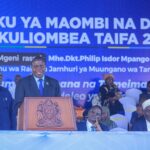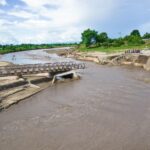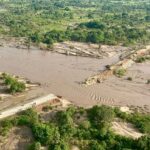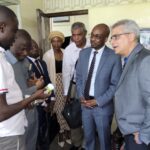Following the signing of the implementation of the Iron Mining Project, Tanzania has commenced a new historical chapter in the utilisation of its abundant natural resources. The project, estimated to be worth 77 million dollars, represents a significant milestone in the nation’s industrial and economic development.
The implementation of the Iron Mining Project is scheduled to commence in the Maganga Matitu area of Njombe District. This region, which is rich in mineral resources, has long been identified as a potential hub for industrial activities. The principal objective of this project is to stimulate industrial development within Tanzania, thereby fostering economic growth and creating a multitude of job opportunities for the local population.
The formal agreement for the Iron Mining Project was concluded on 2 August 2024. This pivotal moment witnessed the National Development Corporation (NDC) and Fujiani Hexingwang Industry Tanzania Co. unite to formalise the agreement.
The signing ceremony was attended by a number of distinguished dignitaries, including the Deputy Prime Minister and Minister of Energy, Dr. Doto Biteko. The presence of these distinguished guests served to highlight the significance of the project to the Tanzanian government and its dedication to the sustainable development of the country’s natural resources.
Economic Implications and Industrial Development
The Iron Mining Project is positioned to have significant economic consequences for Tanzania. By exploiting the abundant iron ore deposits in the Maganga Matitu region, the project aspires to stimulate the country’s industrial growth. The extraction and processing of iron ore will not only furnish local industries with essential raw materials but also diminish the country’s reliance on imported iron and steel products.
Tanzanias Iron Mining Project: A New Era of Resource Utilisation and Economic Growth
Following the signing of the implementation of the Iron Mining Project, Tanzania has commenced a new historical chapter in the utilisation of its abundant natural resources. The project, estimated to be worth 77 million dollars, represents a significant milestone in the nation’s industrial and economic development.
Project Implementation in the Maganga Matitu Area
The implementation of the Iron Mining Project is scheduled to commence in the Maganga Matitu area of Njombe District. This region, which is rich in mineral resources, has long been identified as a potential hub for industrial activities. The principal objective of this project is to stimulate industrial development within Tanzania, thereby fostering economic growth and creating a multitude of job opportunities for the local population.
Formal Agreement and Dignitary Presence
The formal agreement pertaining to the Iron Mining Project was duly executed on 2 August 2024. This significant event marked the culmination of negotiations between the National Development Corporation (NDC) and Fujiani Hexingwang Industry Tanzania Co., resulting in the formalisation of an agreement. The signing ceremony was attended by a number of distinguished dignitaries, including the Deputy Prime Minister and Minister of Energy, Dr. Doto Biteko. The presence of these distinguished guests served to highlight the significance of the project to the Tanzanian government and its dedication to the utilisation of the country’s natural resources for the advancement of sustainable development.
Economic Implications and Industrial Development
The Iron Mining Project is positioned to have significant economic ramifications for Tanzania. By utilising the substantial iron ore deposits in the Maganga Matitu region, the project aspires to stimulate the country’s industrial sector. The extraction and processing of iron ore will not only provide raw materials for local industries but will also serve to reduce the country’s dependence on imported iron and steel products. This will contribute to the growth of the domestic manufacturing industry and foster a more self-sufficient economy.
Moreover, the project will result in the creation of employment opportunities for the local population. As the mining and processing operations expand, there will be a need for a range of skilled and unskilled workers, offering prospective employees in the surrounding communities a variety of job prospects. This will contribute to the alleviation of unemployment and an improvement in the standard of living for a significant proportion of the Tanzanian population.
In addition to the direct economic benefits, the Iron Mining Project will also have indirect positive effects on other sectors. The rise in industrial activity will give rise to a demand for supporting services, including transportation, logistics, and infrastructure development. This will stimulate growth in these sectors and attract further investment, thereby fostering a more diversified and robust economy.
In conclusion, the Iron Mining Project in Tanzania represents a significant step towards the utilisation of the country’s natural resources for the purposes of economic growth and development. By exploiting the substantial iron ore deposits in the Maganga Matitu region, the project aspires to stimulate industrial growth, diminish reliance on imported materials, and generate employment opportunities for the local population. With the backing of prominent figures and the dedication of the Tanzanian government, this project has the potential to transform the nation’s economy and enhance the quality of life for its citizens.
Tanzania Media
- Kanyala Ferry Launch: TEMESA’s New Service for 15,000 Sengerema Residents (Mwanza) - 18 August 2025
- Russia-Tanzania Naval Cooperation: How the Smolny Training Ship Boosts Dar es Salaam’s Maritime Security - 18 August 2025
- Tanzania’s ICGLR Commitment: Stabilising the DRC & Great Lakes Region - 18 August 2025































